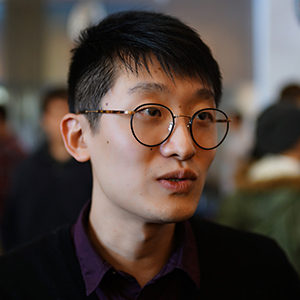Doctors require biometric sensor data to improve diagnostic accuracy, monitor a patient’s recovery progress, and make informed decisions about further treatment. Historically, this biometric data is collected in-clinic, i.e., patients schedule visits to take the measurements at the doctor’s office. While the data collected in-clinic is rich in spatial resolution, it lacks temporal continuity since the patient’s visits range from weeks to months apart based on the patient’s health status and the doctor’s availability.
The intervals between these visits have led to the development of remote monitoring devices, such as for ECG and blood pressure, which can collect biometric data also in-between visits. However, individual patient health conditions are diverse and often complex. Thus, traditional sensing techniques, while effective for the broader population, often do not meet the unique needs of specific patient groups, especially for environments beyond clinic and home.

In this talk, I will be presenting my work around personalized health and medical monitoring device(s) with custom sensing functions based on the patient’s health conditions, with unique device form factors based on the patient’s body shape and usage context, as well as patient specific models for analyzing the collected data, just how doctors customize treatment and recovery plans for every patient in-clinic.
Junyi Zhu is a final-year Ph.D. candidate from the HCI Engineering (HCIE) group in EECS department and Computer Science and Artificial Intelligence Laboratory (CSAIL), at the Massachusetts Institute of Technology (MIT). He is advised by Professor Stefanie Mueller.
His research lies at the intersection of fabrication, novel sensing technologies and HCI, with an emphasis on health and medical applications. He designs and fabricates personalized health and medical sensing devices that can be used for both dynamic in-field environment for remote monitoring and diagnosis sessions, as well as in-clinic monitoring along with other medical procedures, to provide more temporal and spatial information for doctors and physicians.
During his Ph.D., he collaborates closely with medical doctors and clinicians from Massachusetts General Hospital, Brigham and Women’s Hospital, Children’s Hospital Colorado, and Harvard Medical School, with his devices deployed in hospitals among real patients. He is a MIT Seneff-Zue Computer Science Fellow, a MIT Thomas G. Stockham, Jr (1955) and Bernard (Ben) Gold Fellow and a Seibel Scholar.